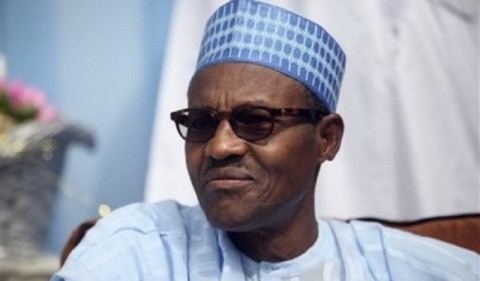Anti-Corruption: Group Wants Buhari To Strengthen FOI Implementation
Latest Headlines, News Friday, May 29th, 2015
By Eric Ojo – Media Rights Agenda (MRA) has urged President Muhammadu Buhari to make the effective implementation of the Freedom of Information Act a major pillar of his proposed anti-corruption crusade in the country.
MRA said the FOI is the most effective instrument that enables every citizen of Niogeria to join in the fight to stem the menace of corruption in the country.
The group noted that although the signing of the Act into Law on May 28, 2011 remains one of the enduring legacies of former President Goodluck Jonathan, its implementation over the last four years has been lackluster in many respects with the result that it has been unable to achieve its full potential of enthroning transparency and accountability in governance.
The Executive Director of MRA, Mr. Edetaen Ojo who made the observation in statement issued in Lagos, shortly after Buhari was sworn in as the President of the Federal Republic of Nigeria in Abuja, stated that the President’s desire to tackle corruption is not in doubt.
“We have no doubt about the desire and capacity of President Buhari to combat corruption in Nigeria. However, given the scale of the problem, for his efforts to gain traction and be effective, ordinary citizens have to be an integral part of his anti-corruption strategy so that corruption can be revealed and challenged wherever it manifests”, he said.
Mr. Ojo, added that a vigorously implemented and effective the FOI Act is undoubtedly the most practical way of ensuring such citizen engagement.
He further explained that it was for this reason that MRA decided to present President Buhari with a set of proposals on the day of his inauguration and a day after the fourth anniversary of the enactment of the FOI Act on how to enhance its implementation and position the Law to achieve its primary purpose.
He said the MRA is therefore proposing that in order to overcome the bureaucratic bottlenecks and resistance to the access to information regime prevalent in public institutions, the Government of President Buhari should embark on a deliberate programme to sensitize public institutions and officials at all levels of government about the rights of the public to access information held by public institutions.
“Sensitization should not be limited to freedom of information officials alone but should include all staff of public institutions so that they are able to play their different roles in creating open institutions, including being able to direct members of the public to appropriate Freedom of Information officials within their institutions. Administrative sanctions should be imposed on officials who deliberately flout the law or undermine its effective implementation”, he added.
The Director also suggested that the Government of President Buhari should make specific budgetary provisions for public institutions to help them to properly discharge their obligations under the FOI Act, including allocating resources to assist them in putting in place adequate record keeping and information management systems as well as funding the Freedom of Information unit in each public institution.
Mr. Ojo further stated that the MRA wants public institutions to be required to use digital and electronic records management systems to enhance the implementation of the Act, adding that public institutions should take advantage of the Internet, ICTs and social media tools in receiving, processing and responding to requests for information as well as in fulfilling their proactive disclosure obligations, including using infographics to present and explain complex data.
He added that the Government should put in place facilities and infrastructure to ensure the availability and effectiveness of such tools.
“MRA welcomed President Buhari’s pledge in his campaign document, ‘My Covenant with Nigerians’, to encourage proactive disclosure of information by government institutions in the spirit of the FOI Act and emphasized that the proactive disclosure provisions in the Act, if implemented, will reduce the burden on public institutions to process numerous individual requests for information from members of the public.
“Accordingly, it said, public institutions should be required to comply with and take advantage of this important mechanism in the law to make information available to the public as this will also enhance citizens’ trust in them and in the government as a whole”, the statement further disclosed.
The MRA, the statement added equally advised President Buhari to ensure that government public outreach institutions, such as the Federal Ministry of Information, its state counterparts, and the National Orientation Agency (NOA), are required to undertake public enlightenment activities to enhance public awareness of the existence of the Act and better public understanding of its provisions as well as how to use it. Such outreach activities, it said, should be sustained over time to achieve the desired impact.
The statement also urged the Executive Branch of Government to liaise with the appropriate agencies within the Judiciary to ensure that proper and adequate sensitization programmes are undertaken to enable judges who have to deal with cases arises from the Act to have a better understanding of the nature and philosophy of the Law, its provisions and to put in place the special procedures envisaged under the Act for dealing with cases of denial of access to information.
The statement suggested that the oversight body under the Act, which the Office of the Attorney-General of the Federation, should be adequately funded, staffed and equipped to ensure that it provides effective oversight in the implementation of the law. Staff in the office of the oversight body should be properly trained to ensure that they understand their functions and powers under the Law and to enhance their ability to perform their functions effectively.
It further stressed that efforts should also be made to enhance the independence of the Attorney-General of the Federation with regards to his oversight functions under the Act.
Related Posts
Short URL: https://www.africanexaminer.com/?p=23796






















